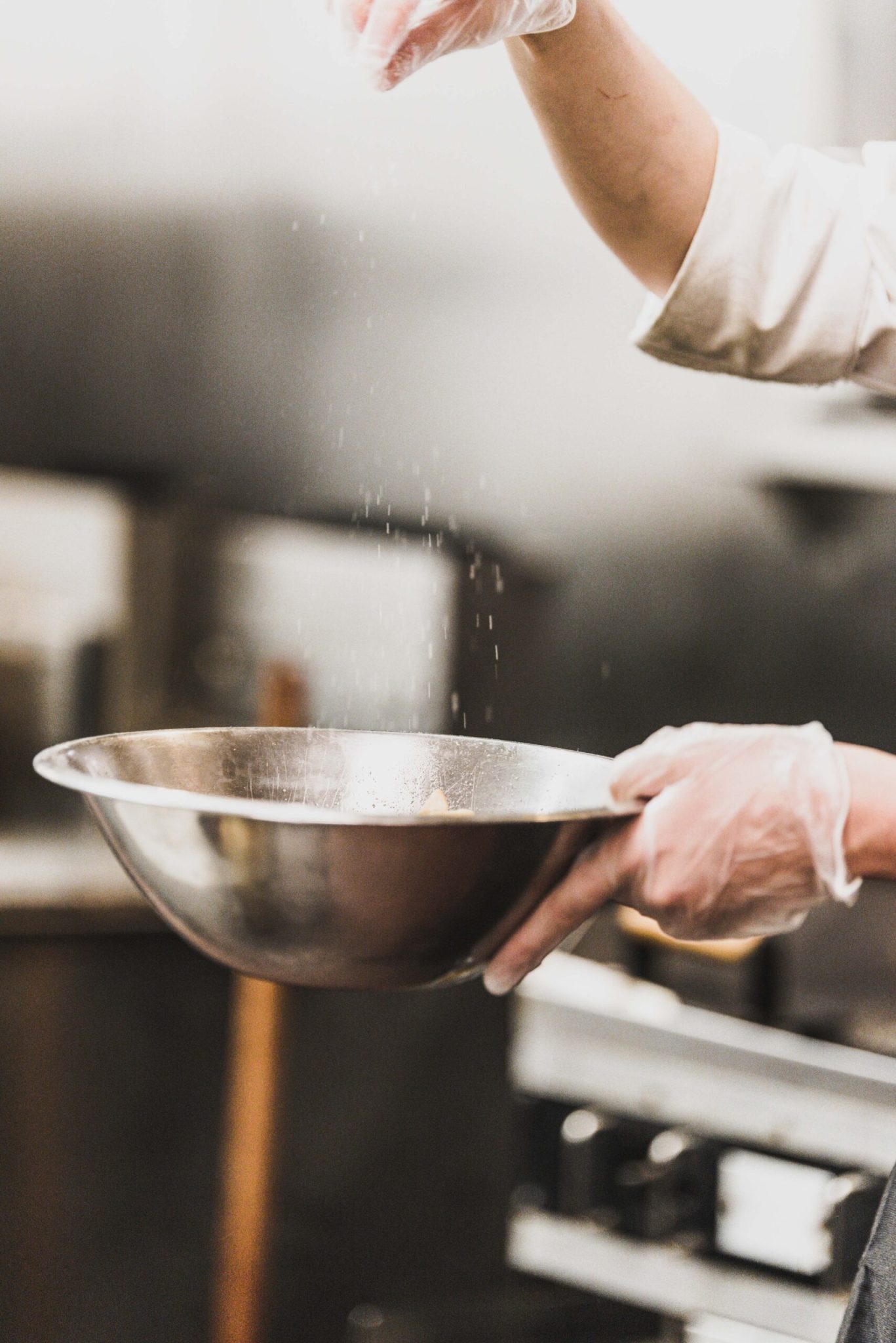How to Start a Cannabis Business: Top 5 Service Providers You Need to Hire
When starting a new cannabis business, finding the right partners can be tricky. Learn more about who you need to hire to kickstart a successful...
Interested in starting a weed edibles company but not sure where to start? We’ve got all the info you need in this complete guide.

Cannabis edible sales are on track to reach staggering new heights over the next five years. Of the total $25 billion in cannabis revenue in 2021, $1.38 billion was cannabis-infused foods. According to MJ Biz Daily, $1 billion of edible sales were solely weed gummies, capturing over 70% of the entire weed edibles market.
While confections may seem simple enough, there are many hurdles to launching a successful cannabis edibles company. However, with edible sales increasing 20% in the past year alone, it’s a worthwhile endeavor for anyone looking to enter the industry. If you are intrigued by the potential of this burgeoning industry sector, read on to learn more about what it takes to start a weed edibles company and how to find the right business partners to grow your brand.
We spoke with two cannabis industry veterans to glean these invaluable insights on the challenges they’ve faced in their line of work and what advice they’d offer to anyone interested in what it takes to run a successful edibles company.


Jamie Payne is a trained pastry chef with over a decade of experience developing cannabis edibles. Her expertise in confections has led to multiple accolades, including several award-winning edible products. Payne currently owns and operates Oracle Edibles—a cannabis edible consulting firm positioned to help newcomers and industry veterans expertly formulate new recipes.
Lindsay Hurley brings over seven years of experience in cannabis confections to her current role as Director of Edible Production for famed California producers Papa & Barkley. In a year, she launched ten new and innovative gummy SKUs for Papa & Barkley and prides herself on formulating recipes that prioritize clean, effective ingredients that remain true to the originating strain.
During our talk with the canna chefs, we dialed in some of the big-hitting top tips for how to start a weed edibles company and what considerations can make or break a profitable brand. Here’s what we’ve learned.

Beyond the initial idea and the passion for the industry, all new businesses need funding. Starting a cannabis company is not as simple as bootstrapping your way to the finish line. It requires capital and a lot of it. Unlike other edible companies, you don’t have the option of trying out your first recipes at home or renting shared kitchen space.
“I think the hardest part of starting a cannabis company is access to traditional funding. Decriminalizing cannabis on a federal level will make banking and raising capital a lot easier for cannabis companies. Not to mention it would help suppliers be more willing to work with cannabis companies when their goods and services can be federally insured,” said Payne.
Before beginning the hunt for capital, do your due diligence on the legality in your state. If you intend to build a recreational marijuana company, make sure you are able to do so. Then, get very clear on the state guidelines to find out if you will be eligible for application. Do your research on state requirements for obtaining cannabis licensure.
For example, some states require that the licensee holds a certain amount of liquid capital to qualify for the application. In addition, states like Illinois create barriers to entry for many applicants with the $5,000 application fee. A license will set you back $60,000 every two years to remain operational if approved.
Yet, not all states impose such hefty fees. Oregon edible companies can expect to pay $4,750 per year to maintain their license, which is considerably less than most all other recreational states. Still, licensing fees are just the beginning of your expenses when starting a weed edibles company. As you prepare your business plan, carefully consider how much capital you’ll need for startup costs and sustainable growth.

Statistics show that gummies dominate the cannabis edible market by a long shot. It’s a consumer-friendly product that is easy to dose and can be made with ingredients that are attractive to today’s consumers. Weed gummies made with pectin instead of gelatin entice fans of vegan edibles, and most gummies are naturally gluten free. A wide variety of plant-derived coloring and flavoring further enhances weed gummies’ “all-natural” appeal.
“Gummies are a great product to enter the cannabis industry with. You can make gummies in several different flavors and varieties,” said Hurley, further explaining that it’s a fairly inexpensive product with a relatively simple SOP. Payne and Hurley agree on one determining factor for starting with gummies: shelf life. A gummy will maintain its integrity for several months, a massive bonus for a new business trying to gain visibility in a competitive retail environment.
“In my experience, full-spectrum oils and butter are the best options because they offer the most benefits. The type of carrier, such as butter or crude oil, is a less important factor than, say, choosing full spectrum material versus isolate,” Payne noted.
“I personally prefer full-spectrum inputs like hash and rosin,” Hurley commented. She explains that Papa & Barkley uses only sun-grown cannabis to produce solventless rosin for their edible infusions. “Fire in, fire out,” she added, meaning that the quality of the material going into the edibles largely determines the efficacy and effectiveness of the product.
Ultimately, deciding on your initial product offerings should be backed by consumer trends. As the market matures, consumers opt for products made with healthier ingredients and transparency in their plant origins and type of extraction method used for the infusion. This is especially important for medical marijuana patients who wish to choose a health-conscious option or need to know exact product information.
Above all, the most crucial components of effective weed edibles are that they are fast-acting, easy to dose, consistent in effect, and taste delicious.
A fully stocked commercial kitchen includes all of the basics you need to create confections, like multiple Pyrex measuring cups, glass beakers, spatulas, and other essential tools and utensils. Depending on your operation and product line, you may need numerous commercial mixers and ovens, walk-in freezers, and several refrigeration units.
Hurley disclosed that a manual or automatic candy depositor is necessary for large-scale gummy production. “Manual depositors like the Universal Depositor by Truffly Made are very easy to operate and reasonably priced compared to automated systems. However, automated depositors like the Baker Perkins Mini Servo are a great option for taking your production scaling up to the next level,” she said.
Both chefs added that you should never skimp on quality molds. Removing gummies from their molds is the biggest bottleneck in the production process, and working with sub-par molds can increase labor costs and reduce product quality.
When asked what one piece of equipment she couldn’t live without, Payne replied, “Accurate scales are the most important thing in your kitchen. Inaccurate measurements can ruin recipes and skew the dosages to a point where they will be unsellable.”
Nailing the cannabis edible recipe is tricky, even for an experienced confectioner. As Payne pointed out, accurate scales are a canna chef’s best friend. Cannabis oil is the most costly ingredient in any edible recipe, and it’s so important to get your measurements right the first time. If the edibles end up over or under the allowance set forth by the state, the entire batch will likely need to be thrown away.
Even with the correct starting weight of cannabis oil, you’re not in the clear unless the oil is fully homogenized into the other ingredients. When asked how she ensures her edible batches are fully homogenized, Hurley replied, “Each edible product has a unique formula. Your production SOPs should reflect the optimal time and temperature to add extracts to maintain a consistent dosage. This will take some research and development depending on the edible product you are making.”
While this applies to gummy production, it doesn’t account for all edibles. “If you have cookies with huge chunks of walnuts and chocolate chips, those also have to be distributed somewhat evenly. A cookie with eight walnuts will have a much different dosage than a cookie with one walnut,” explained Payne.
Formulating recipes has a lot to do with solid process documentation. This often requires software and technology that can help automate mathematical processes and formulas to help reduce human error and track progress. “You must adhere to Good Manufacturing Practices and implement checklists and documentation for every step of your process to ensure your batches stay consistent and homogeneous,” added Hurley.

None of the above guidelines will come to fruition without a fundamental understanding of food safety. Every state offers a certification course designed to teach all employees how to properly handle food to ensure a product free from contamination and safe for human consumption. In addition, a commercial kitchen must meet local requirements as directed by the health department and additional compliance guidelines mandated by the state’s marijuana program.
A trusted cannabis testing lab partner is crucial to your success. Not only will you send oil off for testing before formulating your edibles, but you will also need to test batches along the way to ensure you are on track with potency. Most states require a series of testing to show that you have the recipe dialed and can produce it repeatedly. The final results are labeled on your packaging, and if you didn’t meet the requirements, your product will never see retail shelving.
In addition to establishing a relationship with a testing lab, consider hiring a compliance consultant to help navigate the complexities of cannabis regulations. This person should be well-versed in your vertical and others and have a deep knowledge of all applicable laws in the state.
“The process of setting up a new facility or production workspace would be easier if there were more comprehensive resources to allow an individual to understand the regulations. Having an experienced individual to help you translate these regulations is necessary and extremely helpful,” Hurley confirmed.
Building a brand means defining your unique value proposition through imagery, digital design, and copywriting. Branding comes through in how you develop your website and promote your products through print and digital media. The most substantial piece of branding you have for weed edibles is product packaging.
With such limited shelf space in dispensaries, it’s essential to have recognizable packaging emblazoned with your logo. Additionally, the packaging is an opportunity to include product information that customers desire. For edibles, this might be information about the source of origin for the cannabis or the specific strain. Highlights about terpene and cannabinoid profiles are also attractive to sophisticated consumers and are a powerful marketing tool for today’s cannabis enthusiasts.
Unfortunately, the cannabis industry is notoriously wasteful. Compliance often requires multiple types of packaging to include all required safety and warning labels and to be child-resistant. “Cannabis packaging would be better if it were more sustainable, compostable, recyclable, and affordable,” said Hurley.
Payne seconded that there need to be better options, saying that she has yet to find a reliable vendor that checks all the boxes on her wishlist. “Finding functional packaging with safety features at an affordable price has always been the challenge.”
The cannabis industry is known for its unique, stand-out packaging. It’s one thing that makes the industry fun for licensed operators, service providers, and the end consumer. When starting a weed edibles company, it’s well worth the investment to hire a talented designer who understands the nuances of cannabis compliance. A bonus includes connections with a packaging supplier and printer.
By now, you’ve likely compiled a list of what you need to acquire and who you need to hire to start your weed edibles company. However, if you’re feeling overwhelmed by the thought of seeking out each of these professionals and running through the list of providers, you’re not alone.
Payne tells us how she faced hurdles with traditional suppliers simply because she worked in the cannabis industry. She often said she worked for a candy company instead of a cannabis candy company. When we asked her if she felt that a pre-approved network of cannabis service providers would be helpful, she answered, “Absolutely! It would remove any doubt of a company being willing to work with you. It also ensures that they understand the nuances of running a cannabis company versus a traditional corporation.”
Navigating vendor relationships have been even more troubling since COVID disrupted the supply train. Hurley talks of scrambling to find secondary sources for essential items when her regular suppliers have run out of stock or have had unreasonably long lead times. “Being able to source all ingredients and equipment from a pre-approved network would be key! If I had a resource or community of reliable cannabis vendors I could source from, it would be a game-changer,” she remarked.
The cannecht platform is designed to bring licensed cannabis operators and industry service providers together. Many of the obstacles industry veterans still face today can be solved with the cannecht platform. Imagine how beneficial it will be for anyone looking to start a new cannabis business. By entering project criteria like timeline, budget, and location, operators like Hurley are quickly matched with service providers offering the exact goods and services they need.
Establishing solid relationships between operators and providers in a timely manner is cannecht’s primary goal. Not only does cannecht solve the problem of tracking down the list of available providers, but it reduces time and money wasted on courting the perfect partners for your unique business.
Sign up for our beta program today, and let us show you how you can tap into this first-of-its-kind platform. Starting a cannabis company has never been easier than now, and cannecht is here to help you make it happen. To learn more about our company and how the platform works, visit our blog and follow us on Instagram and LinkedIn.
Sign up for our newsletter to receive industry updates and watch the cannecht evolution in action. We can’t wait to cannecht with you.
When starting a new cannabis business, finding the right partners can be tricky. Learn more about who you need to hire to kickstart a successful...
By streamlining the way cannabis companies find service providers, Cannecht.com is changing the game and making it easier for businesses to navigate...
If you’re looking to work in the cannabis industry, but are struggling to negotiate a cannabis service contract, read on to learn how cannecht can...